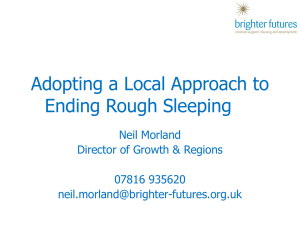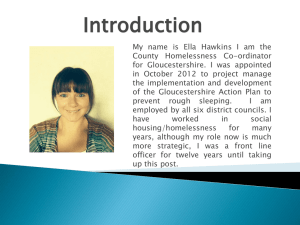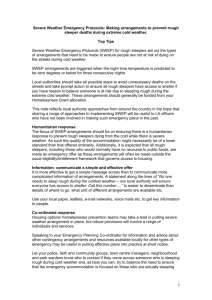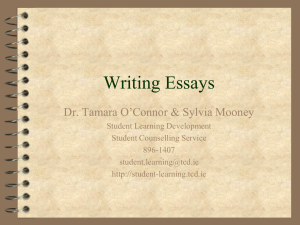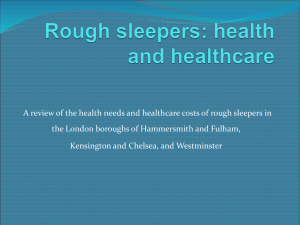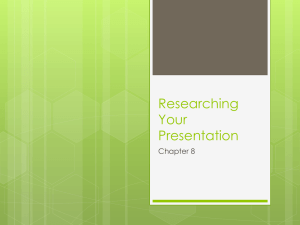The Liverpool Hub and Sit Up Service
advertisement
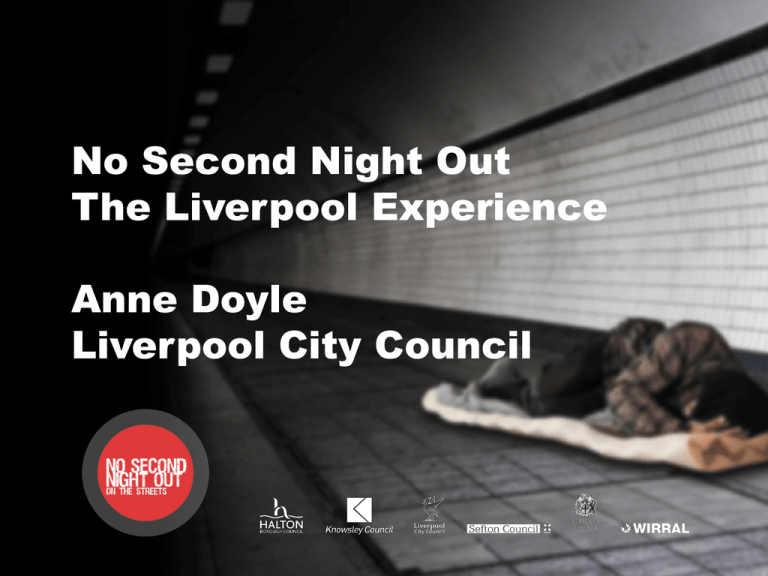
No Second Night Out The Liverpool Experience Anne Doyle Liverpool City Council Overview: • Brief history of tackling rough sleeping in Liverpool • What we did to change things • How we have expanded this across Merseyside • Outcomes • What we have learned • Continuing challenges History of tackling rough sleeping in Liverpool • • • • Rough sleeping at its highest was 31 (back in 1999 / 2000). No one seemed to know the facts Rough sleepers were not being given real options to move away from the street lifestyle Negative impacts upon rough sleepers physical and mental health and negative impact upon businesses and the perception of the city centre Now, rough sleeping has reduced: in April 2008 in April 2009 in March 2010 in Dec 2010 in Nov 2011 13 6 3 3 (estimate) 9 How we achieved NSNO in Liverpool Establish who main partners are Identify the tools / services required to achieve the vision Implement Offer Identify scale of problem with Partners Establish Vision Review Success / Challenges The key approaches that have worked • the council taking a clear strategic lead • the voluntary and faith sectors signing up to ending rough sleeping • having the solutions available • a much more focused approach to addressing the needs of each individual rough sleeper • a “whatever it takes” approach • the funding behind this to facilitate solutions for individuals Examples of solutions Outreach Personalised solutions The Big Issue Emergency Accommodation Residential Programmes Homeless health teams Ring Fenced Beds Enablement Service Cold weather provision Rent deposits with support Reconnections Hub / Sit Up Service Hospital discharge worker Complex needs panel Enforcement The Liverpool Hub What is the project about? A new Hub & Homelessness Resolution Team: This team delivers housing and welfare advice to resolve or prevent homelessness for new clients who are rough sleeping or are at risk of rough sleeping. Solutions may include access to supported accommodation, homeless prevention, reconnection and other options. Who is the project for? Any new rough sleeper arriving on the streets for the first time and people who are at risk of rough sleeping within the Liverpool City Council boundary. Location & Opening Hours: Monday – Friday: 8am – 3pm at The Whitechapel Centre 3pm – 9pm at The Basement Saturday & Sunday: 8am – 12pm at The Whitechapel Centre The Liverpool Sit Up Service • The Sit Up Service is basically a large room with kitchen / bathroom facilities in an existing 24 hour supported accommodation with a member of staff and a volunteer • It can only be accessed via the hub and is used as a last resort • Aim is to be used for a maximum of 3 nights • If a reasonable solution is refused, then access to the sit up service will be withdrawn • The sit up service is not publicised No Second Night Out Merseyside What does this mean: • One point for reporting rough sleepers • Outreach to respond to the calls and locate individuals • Media campaign to promote NSNO • Mechanisms / pathways to get people in doors • Funding for personalised solutions, i.e: reconnections, B&B, extra support, cleaning etc Outcomes The phone line and extended outreach: 276 calls received to date (since 2nd Feb) Of these we have been able to identify 182 rough sleepers Only seven of these continue to sleep rough – all of these are entrenched rough sleepers The Liverpool Hub and Sit Up Service: 350 people have accessed the hub (since 26th Jan) Less than 1% of the people who accessed the hub slept rough for a second night (3 people) Future subregional plans and possibilities Plans: Extending the life of NSNO City Region Gateway Possibilities: Developing service standards for HOS across the 6 councils using the SDTK developed by DCLG Developing / improving satellite sit up services in some of the LA’s Shared Housing Pilot What we have learned: People (the public, voluntary sector, faith groups etc) want to help Rough sleepers generally want the help that’s offered A more personalised approach works Many more calls than expected are from agencies looking for help resolving client issues because they are unable to find solutions Comparatively small numbers of calls actually relate to sightings of rough sleepers Agencies in other boroughs struggle to find solutions for non-priority/intentional rough sleepers Working across boroughs demonstrates that some HOS are routinely using Liverpool to place clients Individual boroughs have not yet got streamlined day time (e.g Hub) and night time (e.g Sit up ) provision Continuing challenges There is so much more to be done Authorities providing poor advice and assistance Lack of a strategic approach within authorities between the council and the voluntary sector Street lifestyle (rough sleeping, street drinking, begging) as a whole needs to be tackled together rather than rough sleeping on its own Achieving the balance of meeting local priorities while working across authorities Questions Contact details: Anne Doyle Tel: 07739 538 081 Email: anne.doyle@liverpool.gov.uk

